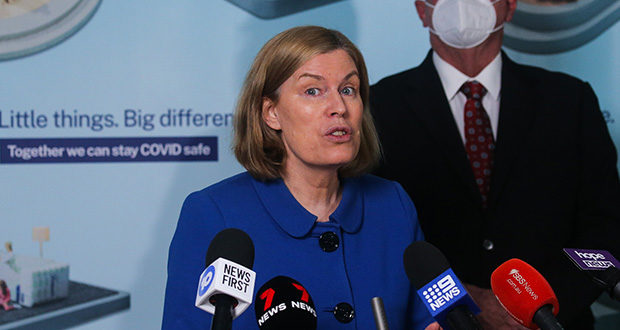A major Covid requirement will be abandoned in one state by the end of the work week in a sign the virus’ influence is weakening.
It will no longer be mandatory for NSW residents to register a positive rapid antigen test (RAT) from Friday in another sign Covid’s influence is weakening in the state.
But NSW chief health officer Kerry Chant has urged people to continue the practice voluntarily even though it is not mandatory.
“Registering a positive RAT through Service NSW allows us to connect people to medical care, particularly older people and the immunocompromised, and it also helps inform our ongoing public health response,” she said.
The NSW government made it mandatory for residents to report their positive RAT results back in January, with the risk of a $1000 fine if they failed to do so.
Chant also asked the public to continue to take the “simple but important steps” to protect others ahead of mandatory isolation ending for the entire country on Friday.
“In particular, we urge people to please stay at home if they have cold or flu-like symptoms such as a runny nose, sore throat, cough or fever and go and get tested,” she said.
“If you have Covid you may be infectious for up to 10 days, but you are most infectious in the two days before your symptoms start and while you have symptoms.”
“If you have to leave the house while unwell, wear a mask when indoors and on public transport, avoid large gatherings and indoor crowded places, and don’t visit high risk settings, such as hospitals, aged or disability care facilities for at least seven days.”
She has advised for high-risk settings, such as hospitals, disability and aged care facilities, that workers should only return to duty after seven days post-Covid if they are symptom-free.
“It is important we continue to think of others, especially those most vulnerable and the best thing people of all ages can do to protect themselves remains to make sure they are up to date with their Covid and influenza vaccinations,” Chant said.
Do you have an idea for a story?Email [email protected]
 Aged Care Insite Australia's number one aged care news source
Aged Care Insite Australia's number one aged care news source

